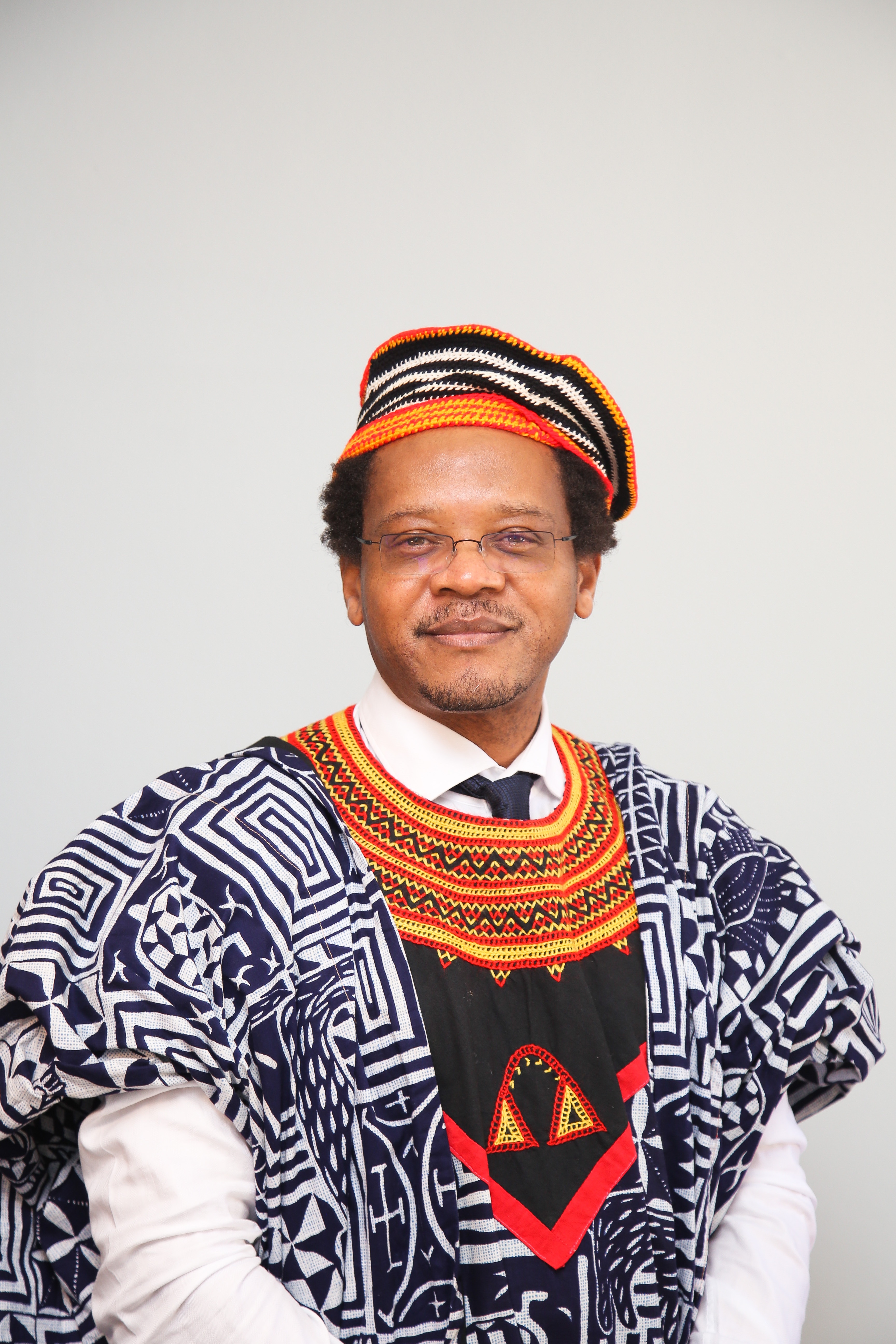 Prof. Wonkam is a Professor of medical genetics, Director of GeneMAP (Genetic Medicine of African Populations) at the Faculty of Health Sciences University of Cape Town, South Africa. After a MD training from the Faculty of Medicine and Biomedical Sciences, University of Yaoundé I (Cameroon), he completed a thesis in Cell Biology in the department of Morphology , University of Geneva (Switzerland) and a PhD in Human Genetics (University of Cape Town South Africa). Other salient aspects of Prof Wonkam’s background include his education as a medical geneticist at a highly reputable genetics department in Geneva (Switzerland). He subsequently practices medical genetics in both European and African contexts. His research interests and international recognition by the academic community are reflected in > 170 peer-reviewed publications which are in molecular, clinical, educational and ethical aspects of medical and human genetics. His research focuses on 1) Psychosocial Burden and Genomics modifiers of Sickle Cell Disease (SCD) 2) Genetics of hearing loss and 3) Ethical and educational Issues in human genetics in Africa
Prof. Wonkam is a Professor of medical genetics, Director of GeneMAP (Genetic Medicine of African Populations) at the Faculty of Health Sciences University of Cape Town, South Africa. After a MD training from the Faculty of Medicine and Biomedical Sciences, University of Yaoundé I (Cameroon), he completed a thesis in Cell Biology in the department of Morphology , University of Geneva (Switzerland) and a PhD in Human Genetics (University of Cape Town South Africa). Other salient aspects of Prof Wonkam’s background include his education as a medical geneticist at a highly reputable genetics department in Geneva (Switzerland). He subsequently practices medical genetics in both European and African contexts. His research interests and international recognition by the academic community are reflected in > 170 peer-reviewed publications which are in molecular, clinical, educational and ethical aspects of medical and human genetics. His research focuses on 1) Psychosocial Burden and Genomics modifiers of Sickle Cell Disease (SCD) 2) Genetics of hearing loss and 3) Ethical and educational Issues in human genetics in Africa
Prof. Wonkam has been investigating numerous monogenic conditions of High burden in Africa, e.g. Sickle cell disease and inheritable hearing Impairment in Africa with focus on the use of genetics in public health intervention. He has introduced the practice of prenatal genetic diagnosis of SCD in both Cameroon and South Africa (Cape Town). He has a traceable record of studying psychosocial burden of SCD and genomic factors that affect the SCD phenotype, specifically studying HbF-promoting loci and co-inheritance of SCD and alpha-thalassemia in Cameroon and genomic variants affecting Kidney Dysfunctions. Prof. Wonkam was the principal investigator (PI) of a NIH funded H3Africa grant aiming to examine ethical issues relating to sickle cell genomics research in Cameroon, Tanzania and Ghana. Since 2017, we established the Sickle Africa Data Coordinating Center (SADaCC) to support the activities of the Sickle Pan African Research Consortium (SPARCo) site in Tanzania, Nigeria, and Ghana.
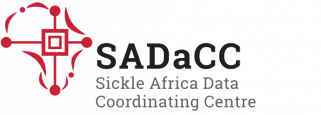
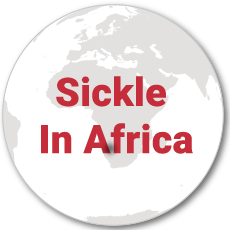
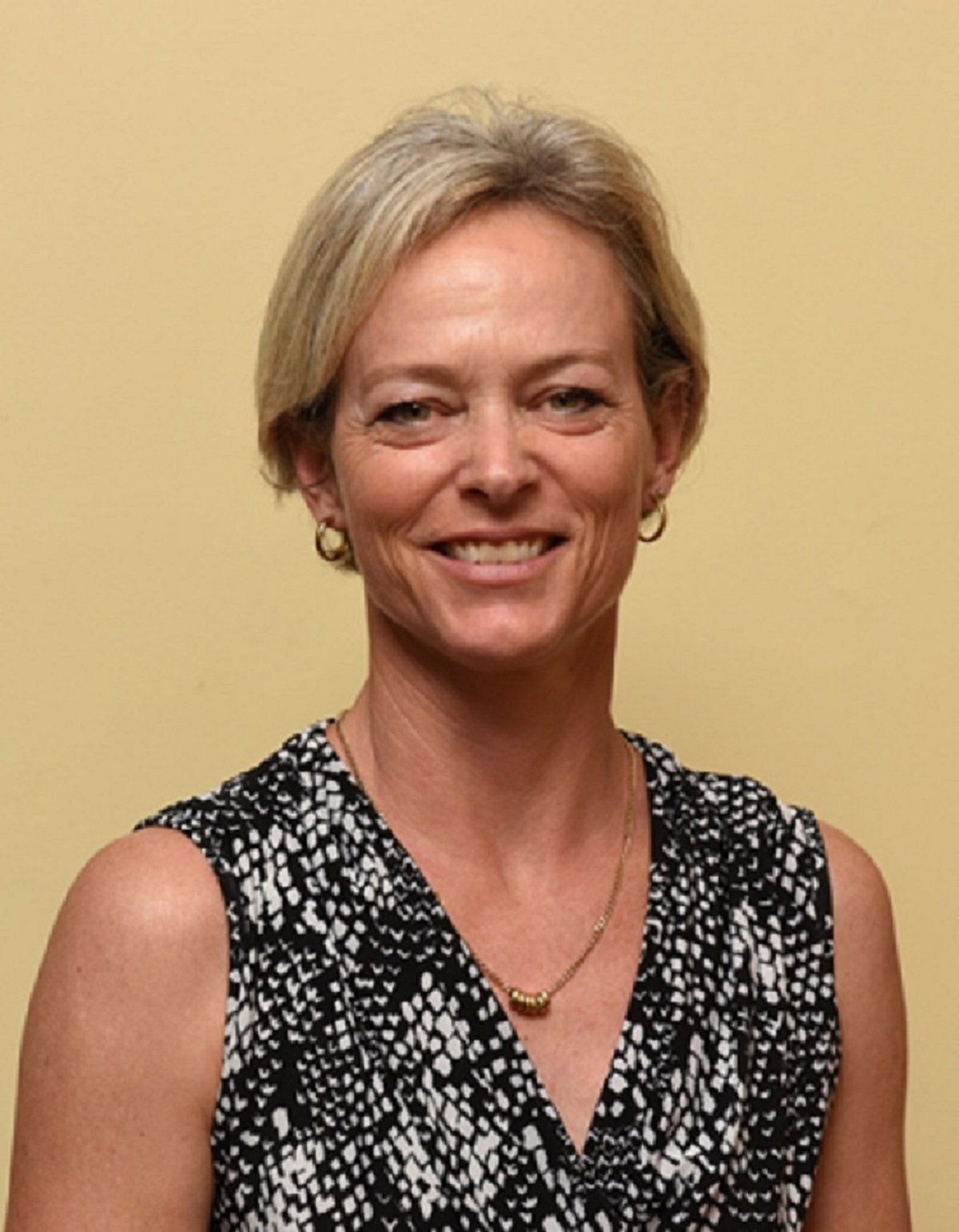 Prof. Mulder heads the Computational Biology Division at the University of Cape Town (UCT), and is a full member of the Institute of Infectious Disease and Molecular Medicine. She leads H3ABioNet, a large Pan African Bioinformatics Network of 28 institutions in 17 countries, which aims to develop bioinformatics capacity to enable genomic data analysis on the continent. H3ABioNet has developed an extensive training program for African researchers. She also co-leads a Sickle Cell Disease Data Coordinating Centre and a Wellcome Trust Centre Data Integration Platform at UCT. She received her PhD in Medical Microbiology from the University of Cape Town and then worked for 8.5 years at the European Bioinformatics Institute in Cambridge, as a Team Leader. At UCT her research focuses on genetic determinants of susceptibility to disease, African genome variation, and microbial genomics and infectious diseases from both the host and pathogen perspectives. Her group provides bioinformatics services and training and develops new algorithms and resources for the analysis of complex African genetic data. Prof Mulder is actively involved in capacity development, including training, education and curriculum development in Bioinformatics. She also sits on a number of international scientific advisory boards.
Prof. Mulder heads the Computational Biology Division at the University of Cape Town (UCT), and is a full member of the Institute of Infectious Disease and Molecular Medicine. She leads H3ABioNet, a large Pan African Bioinformatics Network of 28 institutions in 17 countries, which aims to develop bioinformatics capacity to enable genomic data analysis on the continent. H3ABioNet has developed an extensive training program for African researchers. She also co-leads a Sickle Cell Disease Data Coordinating Centre and a Wellcome Trust Centre Data Integration Platform at UCT. She received her PhD in Medical Microbiology from the University of Cape Town and then worked for 8.5 years at the European Bioinformatics Institute in Cambridge, as a Team Leader. At UCT her research focuses on genetic determinants of susceptibility to disease, African genome variation, and microbial genomics and infectious diseases from both the host and pathogen perspectives. Her group provides bioinformatics services and training and develops new algorithms and resources for the analysis of complex African genetic data. Prof Mulder is actively involved in capacity development, including training, education and curriculum development in Bioinformatics. She also sits on a number of international scientific advisory boards.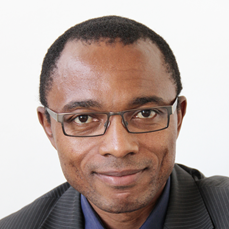 Professor Andre Pascal Kengne is a medical doctor and internist from the School of Medicine of Yaounde in Cameroon; and holds a PhD in medicine from the Sydney University, Australia. He is the current Director of South African Medical Research Council?s Non-Communicable Diseases Research Unit, and holds conjoint appointments as Professor at the Department of the Department of Medicine of the University of Cape Town, South Africa.
Professor Andre Pascal Kengne is a medical doctor and internist from the School of Medicine of Yaounde in Cameroon; and holds a PhD in medicine from the Sydney University, Australia. He is the current Director of South African Medical Research Council?s Non-Communicable Diseases Research Unit, and holds conjoint appointments as Professor at the Department of the Department of Medicine of the University of Cape Town, South Africa.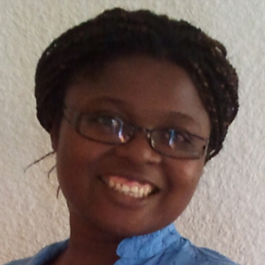 Dr. Nembaware was officially appointed as the Project Manager for SADaCC in November 2017 after about 4 years as the H3Africa training coordinator. She earned her first degree in Chemistry and Microbiology from the University of Cape Town and then graduated Cum Laude for her Hons and MSc degrees from the University of Western Cape (South African Bioinformatics Institute). Vicky was awarded a PhD in Bioinformatics in 2008 from the University of Cape Town.
Dr. Nembaware was officially appointed as the Project Manager for SADaCC in November 2017 after about 4 years as the H3Africa training coordinator. She earned her first degree in Chemistry and Microbiology from the University of Cape Town and then graduated Cum Laude for her Hons and MSc degrees from the University of Western Cape (South African Bioinformatics Institute). Vicky was awarded a PhD in Bioinformatics in 2008 from the University of Cape Town.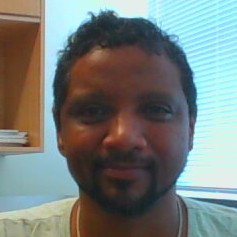 Mr. Jonas' background in Bioinformatics, multi-disciplinary in nature, serves him well in supporting the research and functioning of SADaCC in particular and the SickleInAfrica Consortium in general. He finds satisfaction in enabling his colleagues to focus on their areas of expertise and he is passionate about capacity building and teaching.
Mr. Jonas' background in Bioinformatics, multi-disciplinary in nature, serves him well in supporting the research and functioning of SADaCC in particular and the SickleInAfrica Consortium in general. He finds satisfaction in enabling his colleagues to focus on their areas of expertise and he is passionate about capacity building and teaching.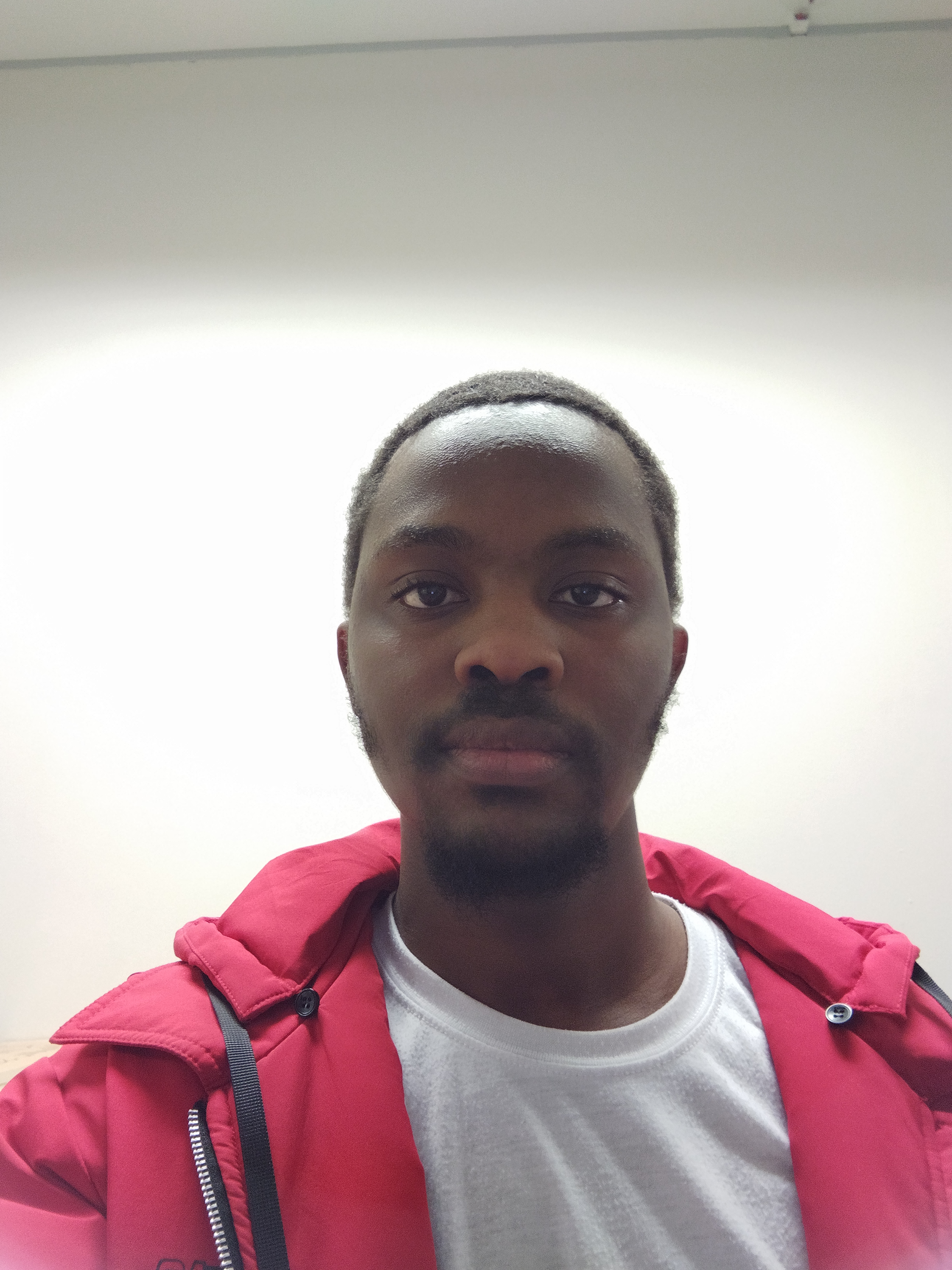 Mr. Mupfururirwa joined the SADaCC group to assist the Data Management and Information group with implementing sustainable Data Management schemas. He is working on implementing mobile health in the SADaCC group. My role is to find gaps in research which technology can fill. He is also currently working on implementing a mobile health application that will assist patients with pain management as well as work on implementing pipelines.
Mr. Mupfururirwa joined the SADaCC group to assist the Data Management and Information group with implementing sustainable Data Management schemas. He is working on implementing mobile health in the SADaCC group. My role is to find gaps in research which technology can fill. He is also currently working on implementing a mobile health application that will assist patients with pain management as well as work on implementing pipelines.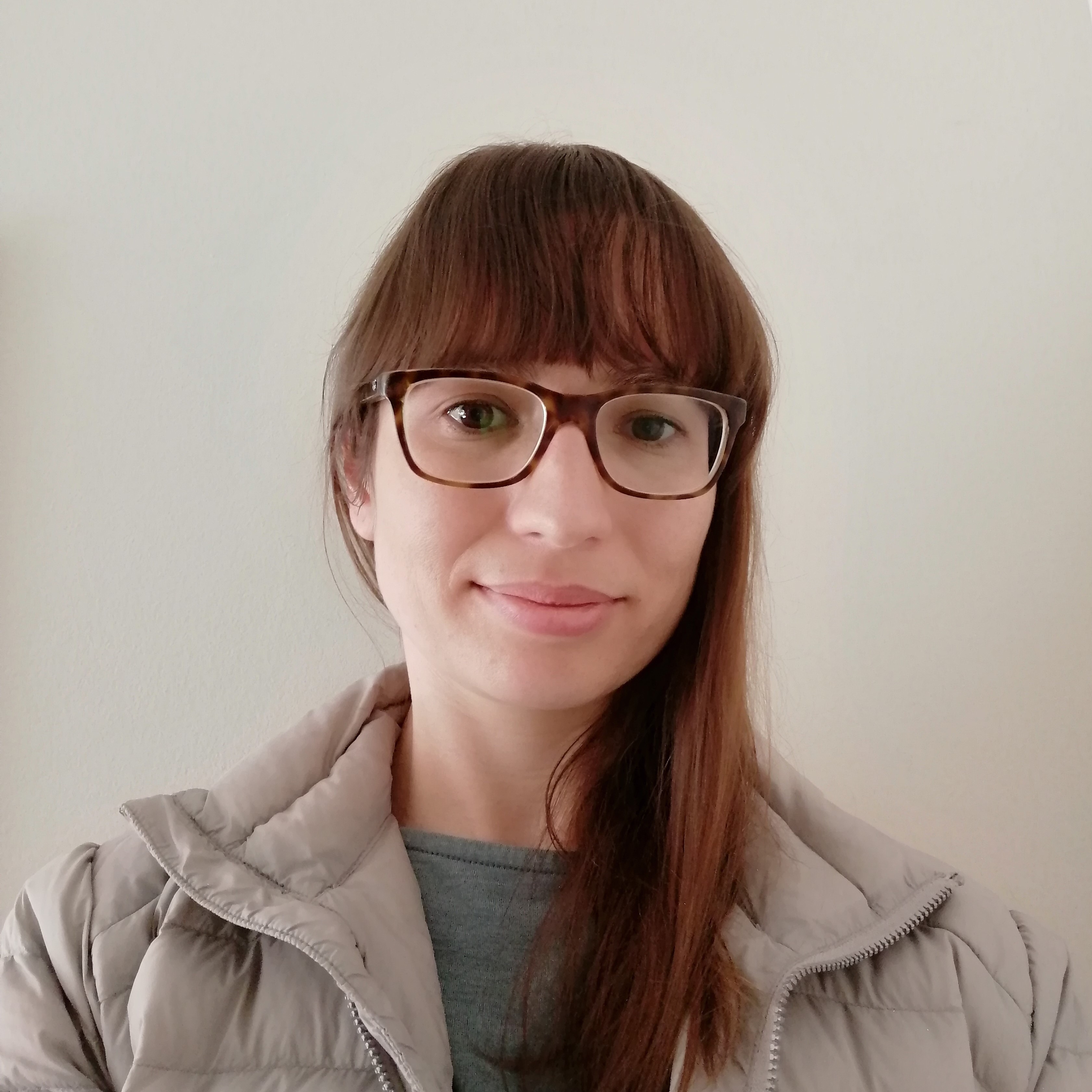 Mrs. Hotchkiss works remotely from her home in Kloof (KZN, South Africa) as the lead curator for the SCDO. Her undergraduate background is in biochemistry and physiology. She has qualifications and work experience related to high school teaching, software development quality control, documentation creation and editing, and programming and research in the bioinformatics field. She is the proud mom of 3 young children, including twin girls.
Mrs. Hotchkiss works remotely from her home in Kloof (KZN, South Africa) as the lead curator for the SCDO. Her undergraduate background is in biochemistry and physiology. She has qualifications and work experience related to high school teaching, software development quality control, documentation creation and editing, and programming and research in the bioinformatics field. She is the proud mom of 3 young children, including twin girls.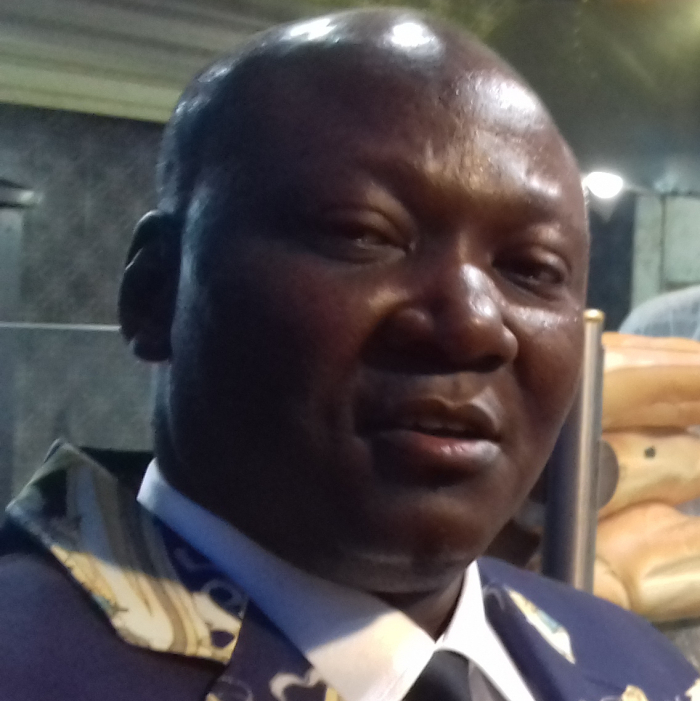 Prof. Emile R. Chimusa (BSc, MSc, Ph.D.), leads the Medical Population Genetics and Genetics Epidemiology Group at the University of Cape Town (UCT). He is a mathematical population geneticist whose main focus of research is on methodologies of improvement in the analysis of large-scale genomic studies such as genome-wide association, fine-mapping studies, admixture mapping, genetics of mixed ancestry populations and analysing genome wide patterns of variation within and between species to address fundamental questions in biology, anthropology, and medicine.
Prof. Emile R. Chimusa (BSc, MSc, Ph.D.), leads the Medical Population Genetics and Genetics Epidemiology Group at the University of Cape Town (UCT). He is a mathematical population geneticist whose main focus of research is on methodologies of improvement in the analysis of large-scale genomic studies such as genome-wide association, fine-mapping studies, admixture mapping, genetics of mixed ancestry populations and analysing genome wide patterns of variation within and between species to address fundamental questions in biology, anthropology, and medicine.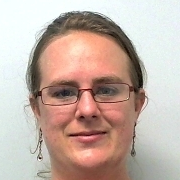 Ms. Stewart is a Public Health and Epidemiology graduate, with years of experience in data management and analysis. She leads the Data Management Team at the Clinical Research Centre in Cape Town.
Ms. Stewart is a Public Health and Epidemiology graduate, with years of experience in data management and analysis. She leads the Data Management Team at the Clinical Research Centre in Cape Town.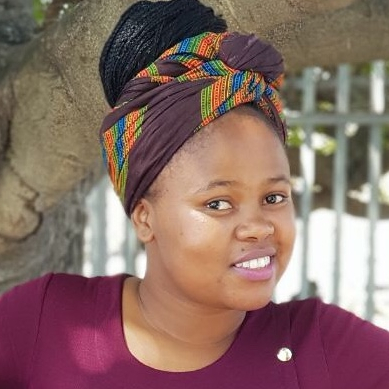 Dr. Mnika obtained her Ph.D. in Human Genetics in 2020. She has already published three manuscripts as a first author and four manuscripts as a co-author in high-impact journals. Her Ph.D. project is entitled;"Pharmacogenomics of Sickle Cell Disease: Pain and Drug metabolism associated Gene Variants” and hydroxyurea induced post-transcriptional expression of miRNAs in an African cohort. This study is necessary to assist in gaining a better understanding of genetic variants affecting the predisposition to specific complications such as stroke and acute chest syndrome and polymorphisms affecting susceptibility to pain as well as the pharmacogenomics of commonly prescribed treatments such as hydroxyurea, malaria prophylaxis and pain medication for future precision medicine in sickle cell disease. Currently, she is a registered Senior Medical Scientist at the National Health Laboratory Services(NHLS) In the Human Genetics division.
Dr. Mnika obtained her Ph.D. in Human Genetics in 2020. She has already published three manuscripts as a first author and four manuscripts as a co-author in high-impact journals. Her Ph.D. project is entitled;"Pharmacogenomics of Sickle Cell Disease: Pain and Drug metabolism associated Gene Variants” and hydroxyurea induced post-transcriptional expression of miRNAs in an African cohort. This study is necessary to assist in gaining a better understanding of genetic variants affecting the predisposition to specific complications such as stroke and acute chest syndrome and polymorphisms affecting susceptibility to pain as well as the pharmacogenomics of commonly prescribed treatments such as hydroxyurea, malaria prophylaxis and pain medication for future precision medicine in sickle cell disease. Currently, she is a registered Senior Medical Scientist at the National Health Laboratory Services(NHLS) In the Human Genetics division.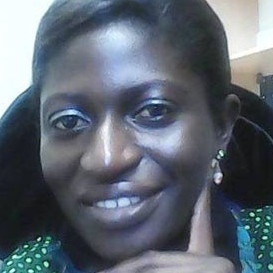 Nchangwi is interested in ethical and social issues in health research. She is currently involved in research related to the equitable governance of global health research consortia. Key areas: Justice, fairness and equity in health research.
Nchangwi is interested in ethical and social issues in health research. She is currently involved in research related to the equitable governance of global health research consortia. Key areas: Justice, fairness and equity in health research.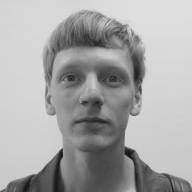 Dr. Morrice is managing the development of data analysis pipelines and training material for big data epidemiology. Pipelines to include GWAS studies, whole genome sequence variant calling, cleaning and summarizing epidemiology registry data, and more. The pipelines will be augmented by extensive online documentation and training materials. Previously a researcher in mathematical astronomy, Jack has moved to the field of bioinformatics and human genetics where they are currently developing modern, ready-to-use, and portable data analysis pipelines for a range of study types in big data epidemiology. Jack obtained his PhD in applied mathematics from the University of Sheffield in the UK before coming to Cape Town, South Africa, where they now live.
Dr. Morrice is managing the development of data analysis pipelines and training material for big data epidemiology. Pipelines to include GWAS studies, whole genome sequence variant calling, cleaning and summarizing epidemiology registry data, and more. The pipelines will be augmented by extensive online documentation and training materials. Previously a researcher in mathematical astronomy, Jack has moved to the field of bioinformatics and human genetics where they are currently developing modern, ready-to-use, and portable data analysis pipelines for a range of study types in big data epidemiology. Jack obtained his PhD in applied mathematics from the University of Sheffield in the UK before coming to Cape Town, South Africa, where they now live. Mr Nguweneza is PhD student in the Division of Human Genetics, University of Cape Town. His project is looking at genetic and non-genetic factors that are associated with blood pressure variation among sickle cell patients. Prior to joining the Division of Human Genetics, Mr Nguweneza worked as a Data Analyst at the National Institute for Communicable Diseases (NICD) from 2014 to 2018 and Epidemiology Fellow at Health Economics and Epidemiology Research Office from 2013 to 2014. Mr Nguweneza holds MSc. in Epidemiology from Stellenbosch University, Cape Town, South Africa.
Mr Nguweneza is PhD student in the Division of Human Genetics, University of Cape Town. His project is looking at genetic and non-genetic factors that are associated with blood pressure variation among sickle cell patients. Prior to joining the Division of Human Genetics, Mr Nguweneza worked as a Data Analyst at the National Institute for Communicable Diseases (NICD) from 2014 to 2018 and Epidemiology Fellow at Health Economics and Epidemiology Research Office from 2013 to 2014. Mr Nguweneza holds MSc. in Epidemiology from Stellenbosch University, Cape Town, South Africa. Ms. Kyomugisha is a PhD student and SADaCC fellow in the division of Human Genetics at the University of Cape Town. She obtained her MSc (Cum laude) and Honours in Biomathematics degrees from Stellenbosch University. Her research was focused on mathematical modelling of HIV-related lymphomas and cost-effectiveness analysis. She obtained her BSc in Mathematics and Physics from Makerere University in Uganda. Her areas of interest include mathematical modelling for public health decision-making and developing computational tools for data management and analysis.
Ms. Kyomugisha is a PhD student and SADaCC fellow in the division of Human Genetics at the University of Cape Town. She obtained her MSc (Cum laude) and Honours in Biomathematics degrees from Stellenbosch University. Her research was focused on mathematical modelling of HIV-related lymphomas and cost-effectiveness analysis. She obtained her BSc in Mathematics and Physics from Makerere University in Uganda. Her areas of interest include mathematical modelling for public health decision-making and developing computational tools for data management and analysis.  Chandré Oosterwyk received her BSc in Medical Bioscience and microbiology at the University of the Western Cape in 2018. In 2018 she completed her Honours degree in Human Genetics. Her honours project involved investigating the role of the SFRP4 causing Pyle disease in a South African patient, which was under the supervision of Professor Ambroise Wonkam. Chandré is currently registered as a Masters student at the University of Cape Town. Her MSc project is aimed at investigating the microbiome profile in patients with sickle cell disease.
Chandré Oosterwyk received her BSc in Medical Bioscience and microbiology at the University of the Western Cape in 2018. In 2018 she completed her Honours degree in Human Genetics. Her honours project involved investigating the role of the SFRP4 causing Pyle disease in a South African patient, which was under the supervision of Professor Ambroise Wonkam. Chandré is currently registered as a Masters student at the University of Cape Town. Her MSc project is aimed at investigating the microbiome profile in patients with sickle cell disease.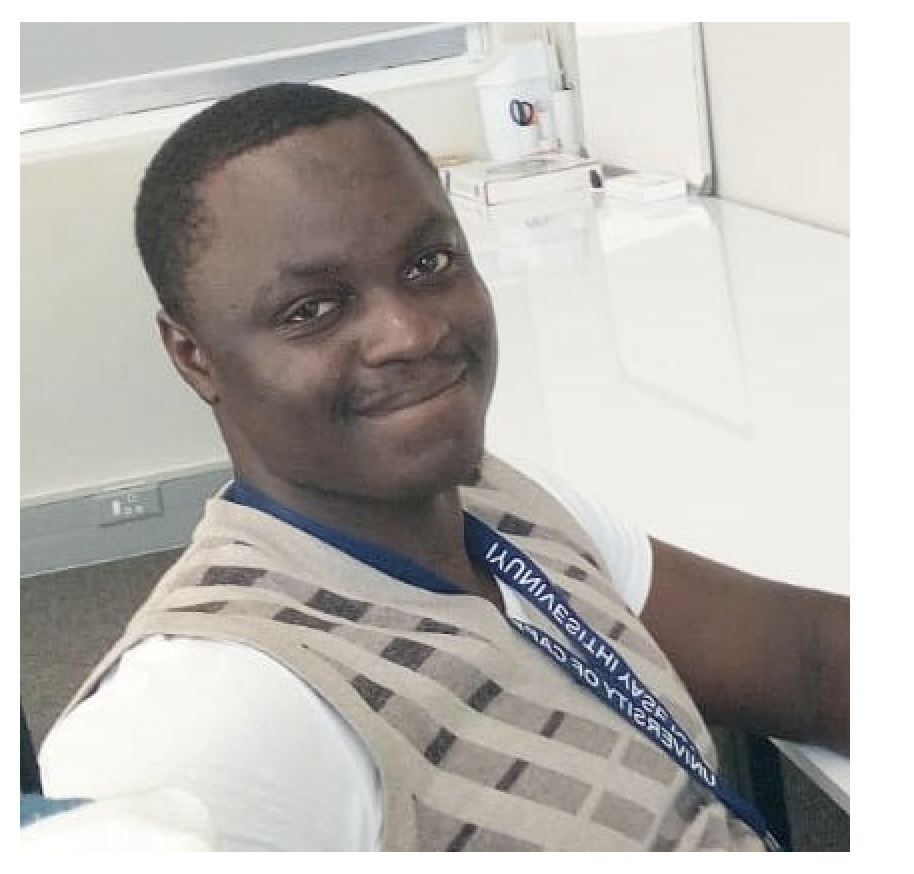 Mr. Esoh is a SADaCC Research Fellow in Human Genetics.
Mr. Esoh is a SADaCC Research Fellow in Human Genetics. Mrs. Samie is a first-year Masters student, specializing in Human Genetics, at the University of Cape Town. She obtained both her Bachelors and Honors degrees studying at the University of Cape Town. Mrs. Samie is the second eldest of two siblings and is married to Sage Davids. Some of her goals include publishing her first journal article, obtaining her Master’s degree and finally getting her driver’s license. Mrs. Samie enjoys spending her free time reading, hiking and playing with her dogs.
Mrs. Samie is a first-year Masters student, specializing in Human Genetics, at the University of Cape Town. She obtained both her Bachelors and Honors degrees studying at the University of Cape Town. Mrs. Samie is the second eldest of two siblings and is married to Sage Davids. Some of her goals include publishing her first journal article, obtaining her Master’s degree and finally getting her driver’s license. Mrs. Samie enjoys spending her free time reading, hiking and playing with her dogs.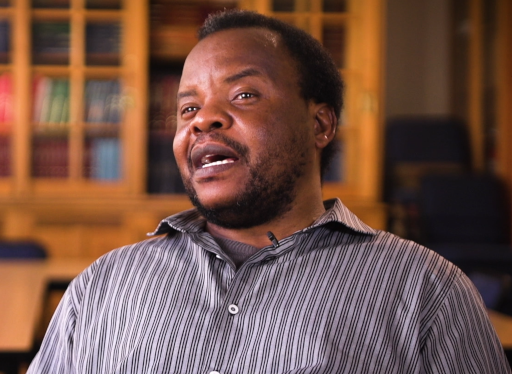 Dr Gaston Kuzamunu Mazandu, passed away on September 24, 2021 in Stellenbosch, South Africa. He was born in Kinshasa, Democratic Republic of the Congo on August 18, 1969, son of the late Mazandu-Kuza and Nketani-Bilandi. He is survived by his beloved wife Madam Marie-Paul (Malungidi), his four children (Jemima, Glodi, Keren and Emmanuel) and his siblings and friends.
Dr Gaston Kuzamunu Mazandu, passed away on September 24, 2021 in Stellenbosch, South Africa. He was born in Kinshasa, Democratic Republic of the Congo on August 18, 1969, son of the late Mazandu-Kuza and Nketani-Bilandi. He is survived by his beloved wife Madam Marie-Paul (Malungidi), his four children (Jemima, Glodi, Keren and Emmanuel) and his siblings and friends.